I first ran the post below all the way back in 2007. It’s both shocking and totally unsurprising that six years on, they still don’t get it.
Six slides is all it takes
There’s something vaguely embarrassing about the whole debate about food shortages taking place in Venezuela these days. Because, really, there’s nothing to debate: the way price controls lead to shortages is one of the best understood phenomena in all of economics.
This is the kind of stuff undergraduates learn within the first week of their first microeconomics course. All you need is a very basic grasp of supply and demand: concepts rooted in the sort of “well, duh!” economic common sense that you really can’t refute without arguing obvious absurdities.
If you haven’t had the pleasure of a formal course in economics, no worries!
I can show you in just six slides:
Now, away from the ideological echo-chamber of Venezuela state media, virtually no one disputes this. We’re dealing with utterly platitudinous, aggressively uncontroversial stuff here. It isn’t really a line of reasoning you can refute.
I mean, you could refute it, but you’d have to change the slope on the curves. Put simply, the only way this is wrong is if you believe the higher the price of something, the more of it consumers will want to buy. Or, alternatively, that the lower the price of something, the more of it producers will want to sell.
I’ll buy that the minute you show me a store running a 1-for-the-price-of-2 sale.
It boggles the mind that we have a government that can’t wrap its mind around these six slides. A government so primitive that it thinks it can legislate away scarcity is a government that has elevated its contempt for common sense to the level of official ideology.
Nor will this problem be alleviated by nationalizing the food sector. There’s a reason why shortage management – whether through interminable lines or ration books – is a mainstay of controlled economies: the dynamics of supply and demand operate regardless of the ideological label you affix to the regime that flouts them. Even the Soviet Union – a fully state-controlled economy backed by the threat of deportation to the gulags – failed to bully sellers into supplying enough to meet demand at controlled prices.
It’s not surprising – slapping the word “socialist” on a country doesn’t magically make its people want to pay more for the things they buy.
For chavismo, though, such talk is just a defense of capitalist deviations like “individualism” and “greed” – moral failings the revolution means to stamp out. And so we get Utopian plans to forge a socialist “new man,” which is just a fancy term for a sucker willing to plump for a pay-2-get-1 sale. A mythical being who enjoys his poverty and actively seeks to deepen it.
It breaks my heart to see such economic obscurantism empowered in Venezuela. Like the proverbial slow-motion train wreck, it’s too easy to foresee where this is all heading. And it’s just plain chilling that our country is run by people who refuse, as a matter of principle, to grasp it.
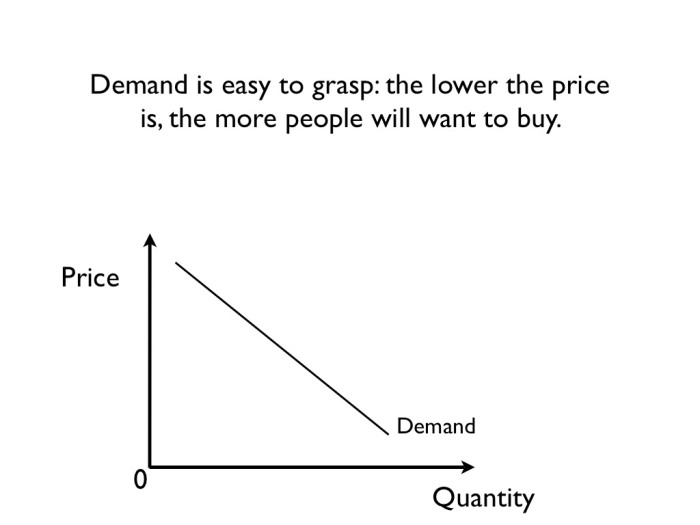
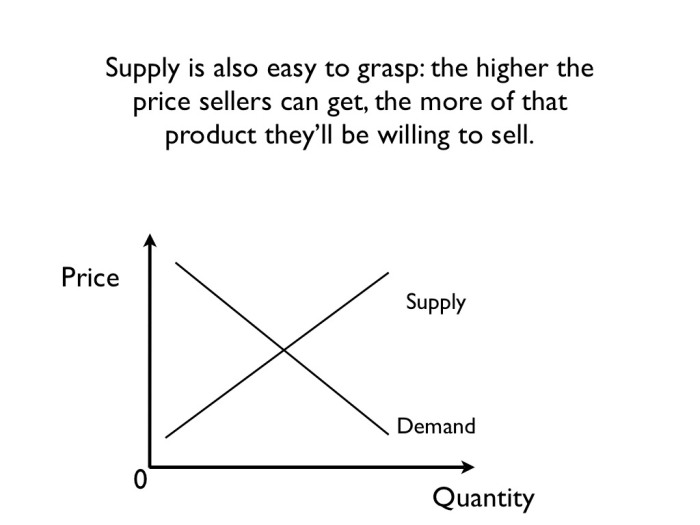
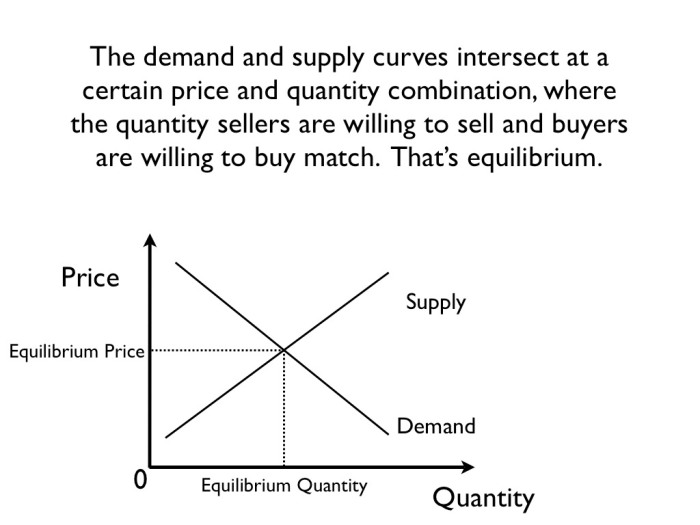
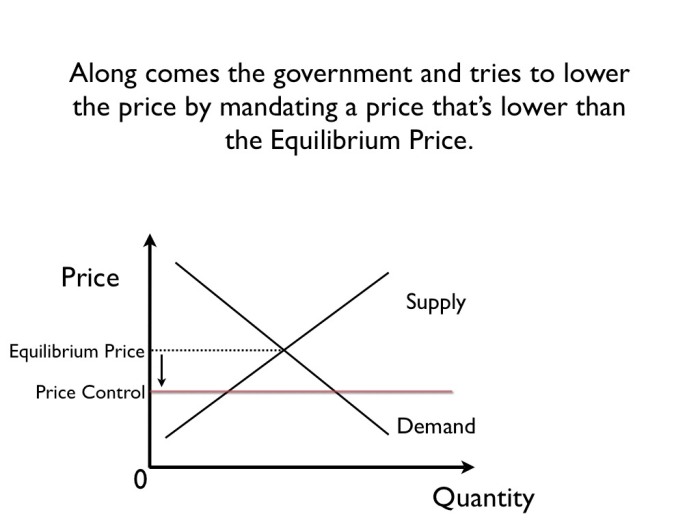
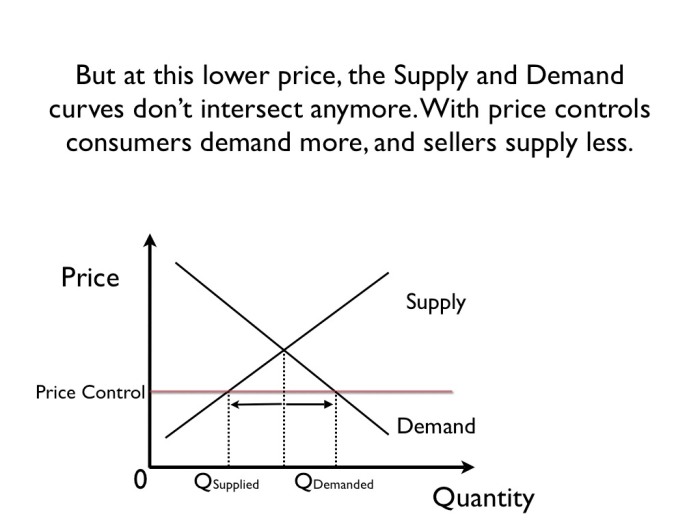
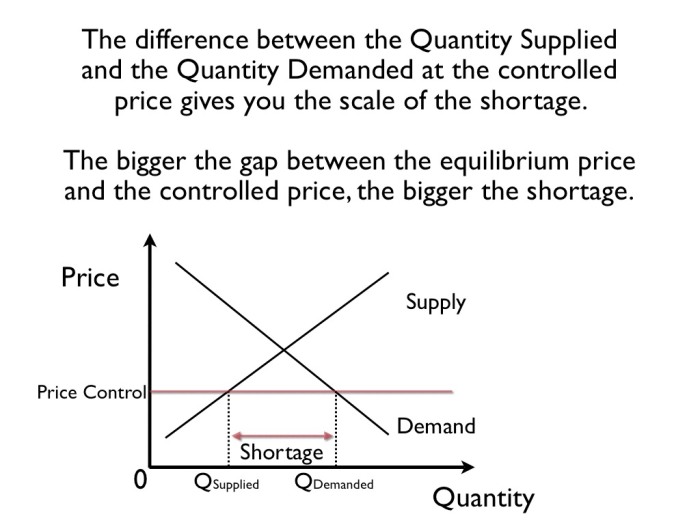
I think Toripollo is meeting with one of the Mendoza people who are gonna explain to him this. Polar twitted that they can only cover 48% of demand and that the rest of the companies who were suppliers have left. So we have to add to all this, for the Chavista who is reading, that a hostile environment for business and “empresarios” is not the best idea. Polar serves on a monopoly climate that has been promoted by none other than Chavez and now the retard heir’s business climate. Do they want to buy them out so they are the ones who will make the arepa flour now? Is that what it is? Then is when you gonna see a big chunk of the population eating arepas made of “tierra”.
LikeLike
I am glad that JC’s Nickname isn’t something like “El Pollo Nagel” or similar ’cause then this could be the “Toripollo” blog.
LikeLike
Toripollo, is that you? :)
LikeLike
Dear Chavistas: The issue to underscore is that private enterprise is not always perfect! But throwing it out altogether was and remains a huge mistake. Let try to build a bridge of mutual understanding here. Employee-owned enterprises are growing rapidly in the United States right now, and cooperatives were always available for small producers to compete with big corporations. I grew up on a small farm, and our farm was a member of a cooperative. The formula is to keep the playing field level!
LikeLike
Not tonight, dear, I have a headache…
LikeLike
[As a matter of principle when we delete one comment we delete replies to it as well. -ed]
LikeLike
Maduro did not finish high school. It is unlikely he ever took an economics class.
To all doubters of Francisco Toro, why does Cuba have shortages?
LikeLike
El bloqueo, la CIA, el FBI, el Imperio, el chupacabras, la iguana, Jaime Bayly, entre otros. Nunca en la vida será porque aplicaron un modelo económico que ha fallado el 100% de las veces que ha sido implementado, desde el tiempo de los romanos hasta el dia de hoy, es un montaje de la derecha fascista, neo-nazi, sionista, ahoga bebes.
LikeLike
Regrettably, is not only the government that does not understand the six slides. When the National Assembly was discussing the stupidity of passing a law to control the price of cars, many of the opposition deputies fell for the same crap of solving a problem of supply by making supply more scarce.
LikeLike
And speaking of that law, the National Assembly put it right back in the freezer.
http://www.ultimasnoticias.com.ve/noticias/actualidad/politica/ley-de-vehiculos-vuelve-a-la-gaveta-de-la-an.aspx
LikeLike
Yes, I saw it. I think that´s a tacit admission of the foolishness of the idea. And I regret that none of the opposition deputies had the guts to say in the Assembly that the idea of a law to control car prices was pure stupidity. As people selling cars would just pay the difference in the real price without including it in the document, making the transaction illegal and consequently making cars even more expensive because of the risk involved in the transaction.
LikeLike
Problem here is that even if you accept the falacious and inflated food production statistics that the Regime puts out ( and which are contradicted by the data given by the Producers associations themselves-when they dare publish it -) its obvious that its hasnt increased enough to sattisfy current demand giving rise to the huge import increases of recent years, Why hasnt production increased in sufficient volumes ?? Evidently because mismanaged expropiated lands now produce less than they should , because overly restrictive price controls have made production uneconomic , because access to some items needed to raise or maintain production cannot be obtained , because inflation has made them innaccesible and or because the government has instituted a system of food imports ( largely to replace falling local production) which are resold at a subsidized price which represents a ruinous competition for surviving local producers. The government’s job includes planning for the future and it hasnt done it , it hasnt been able to increase production at a rate which can sattisfy increased local food demand . Venezuela has always had price controls and yet despite it has gone through periods in which dependence on imports was much smaller than it is now because local production made great strides . To give an example, if you build a new block of apartment buildings were none existed before and dont raise the capacity of the water sewer and electrical lines servicing that block , then living in that block is not going to be very healthy or comfortable . The metaphor will help understand whats happening in Venezuela with food supplies. The failures of the past ( if they existed) are no excuse for the even greater failures of the present . Terrible planning is one of the most salient failures of the regime even if it has had far more resources to execute any necessary plans than any previous government.
LikeLike
Increase or decrease of food production? One issue is the accuracy of government statistics. Setting that issue aside, here are per capita food production stats from the FAO, which gets its stats from the GOV. [2004-2006 average =100]
1999 101.98
2000 106.79
2001 108.06
2002 104.1
2003 97.83
2004 92.8
2005 101.02
2006 106.18
2007 111.24
2008 104.7
2009 98.49
2010 96.99
2011 97.58
This shows per capita food production stagnating since 1999. From 1997 to 2011, there has been a 12% reduction [97.58/111.24] in per capita food production.
http://faostat.fao.org/site/612/default.aspx#ancor
LikeLike
It’s a red herring: how many Bs.10 bills does the government have to produce in order to meet supply if the price of a Bs.10 bill is fixed at Bs.8?!
Production levels have exactly nothing to do with the problem.
LikeLike
Whatever. Comparing South America and Venezuela for per capita food production for 1999 and 2011:
South America: 33.9% increase in capita food production from 1999 to 2011.
Venezuela: 4.4% decrease in per capita food production from 1999 to 2011.
Though you are correct that petrodollars can also bring in food.
LikeLike
An excellent statistical series, based on usually-lying Government statistics, eliminating the effect of local currency valuations, showing the DECREASE (probably still way understated by lying Government statistics) in Venezuelan food production per capita under Chavismo, and, once again, putting the lie to one of the many of GAC’s unsupported claims.
LikeLike
I never said anything about per capita production. I said total production increased, contrary to what Toro claims in his post, and exactly as Boludo’s statistics prove. Amazing how none of you seem to grasp this.
LikeLike
By the way, I completely destroyed Toro’s whole argument here, but he deleted every one of my comments because he’s intellectually dishonest and pathetic.
LikeLike
Sure, and I proved FTL travel, but Quico deleted it. Drat!
LikeLike
OMG, his comments. All gone. Never to be seen again. I am speechless with grief.
LikeLike
And, we all proved how cold fusion could be cheaply achieved, but FT deleted this to protect his relatives still living in Venezuela from economic collapse….
LikeLike
Oh, poor GAC…you can tell that we’re all just heartbroken :'(! No, seriously, man…because, you know, you have just the best arguments EVER in the whole wide world, totally unbiased, not to mentioned, based completely in reality. *sob* Your comment beg the definitions of dishonesty and pathos…
LikeLike
*begs*
LikeLike
That you admit south America had more growth in production per Capita makes me wonder why you are arguing. aren’t you trying to establish that chavizsmo is a success, not that Francisco Toro can be wrong about something?
LikeLike
Exactly. Comparing Chavezuela’s growth in per capita food production with growth in per capita food production South America does not exactly result in a ringing endorsement of food production policy in Chavezuela. And aren’t the Chavistas and their PSF minions trying to tell us how superior the Chavernment is?
Quico’s main point with the graphs was that government interference in the supply and demand curve results in SHORTAGES and less than optimal production. The rest of South America has governments which interfere less than Chavezuela in the supply and demand curve for food production. Result: substantially greater increase in per capita food production for South America as a whole compared to Venezuela.
Which proves Quico’s main point. Q.E.D.
LikeLike
No one is attempting to give a ringing endorsement of Chavez food policy. Only by distorting my argument in this way are you able to pretend you have defeated it.
The point is that Quico’s slides claim that supply declines under price controls. Funny, only a few posts later JC is arguing that Polar has INCREASED production from last year. Isn’t it funny that you guys miss these utter contradictions?
Showing that Venezuela’s food production is worse that South America is a whole doesn’t prove much. Brazil is a massive food producer that has shown tremendous growth in recent years, and thus many Latin American countries pale in comparison.
Venezuela’s growth in production over the last decade is actually quite comparable to Colombia’s or Mexico’s. Are you going to say that those countries’ growth is also affected by price controls?
The fact of the matter is that food supply in Venezuela has been unable to meet demand for nearly 100 years. Trying to claim that this is due to price controls is plain nonsense. Remove the price controls and currency controls and you will likely eliminate the shortages, but only because millions of Venezuelans will not be able to afford to eat properly. Supply will not increase, but demand will fall. Quico’s charts don’t explain this.
LikeLike
I don’t believe in free markets nor in Economy! I only believe in “love”[evol-evil]! THINGS WORK OR THEY DON’T! IT IS NOT A MATTER OF “EVOLUTION” OR MERE CHANCE OR BY THEMSELVES! This 6 slides is as if Economy were “magic”…! Take a bath in your own dirt!
LikeLike
:O
LikeLike
LikeLike
Did Quico sprinkled those slides with exorcist powder? :O
LikeLike
“Tengo con que…Chavez me eseno como…” (Maduro dixit).
LikeLike
boggle all you want …
repeat aloud …
warped minds do not wrap
warped minds do not wrap
warped minds can not wrap
warped minds can not wrap
warped minds believe in magical solutions
warped minds build make believe societies
make believe societies love freebies.
So what part of the FREEBIES have to do with Ec101?
Re: – It boggles the mind that we have a government that can’t wrap its mind around these six slides.
LikeLike
A market automatically channeling SELF-INTEREST toward socially desirable ends lies behind neoclassical economics.
COROLLARY:
POLITICS automatically channeling personal SELF-INTEREST toward insatiably desired ends simmers behind venezuela’s potemkin-village-early-2013 politics.
Let’s see what September brings.
LikeLike
What, me worry?
Alfred E. Neuman
LikeLike
Yeah, God kicked Adam and Eve out of venezuela
that’s old news
We just keep slithering along, sllithering along. *
* Atributed to a well know politically correct snake-in-the-grass.
LikeLike
The very basic grasp of supply and demand outlined in
6 slides by an obviously well schooled counter agent, is
undermining the very existence of our 14 yr old rev.
Where are the usual rojo-rojitos when you really
need them? I am shocked! Shocked!
LikeLike
Quico, I hate to say it but your post is fairly pointless as we are stuck with what we got. I also studied economics as an undergrad and considered getting a PhD. However, there were two thoughts that made me realize how silly it would be to do so:
1) Most politicians don’t really care about what is for the greater good of the economy. Instead, they care about what is in the greater good of their own re-election.
2) “El pueblo” will never learn about economic priciples out of their own rational ignorance (note economist James Buchanan).
Consequently, as long as Chavistas can use the issue to appear more caring than the opposition, reinforce the story of “have & have nots,” and make people even more dependent on government, we are stuck with the shortages we have…
LikeLike
It’s precisely because 1) is right that I’m staggered that they still don’t get it. Shortages are a HUGE political problem for Maduro and his entourage. They NEED to understand what causes them to sustain themselves in power. But…they don’t.
LikeLike
I guess we agree on the fact that politicians care for themselves more than for the economy… Where we disagree is what is best for their re-election…
Your same argument can be made in the case of unemployment & minimum wage. Yet, most countries (US & Europe included) continue to raise the minimum wage despite the high unemployment rates.
Most politicians who are left of center love price controls because it shows they care and the broader population will never trace the issues back to the policy, which is causing the issue in the first place…
LikeLike
Continuing an OT, but the effect of marginal min wage increases on unemployment is not a topic for which there is a consensus among labor economists.
I’d also take issue with your characterization that most politicians who are left of center love price controls. A small minority of left of center governments out there impose price controls or even express a desire to do so.
But your larger point is obviously correct. Politicians are interested in short term popularity, not long term growth or fiscal health…at least not if they have to make a choice.
LikeLike
Dude, 40 years later the Allendistas are still saying that shortages in Chile were the result of hoarding by the rich. It’s a long-running item of faith. You may as well argue that the US didn’t plan 9/11.
LikeLike
I think they actually do get it, but they are in a political trap, and they are trying to find a way to save “face”!
LikeLike
… and the Cubans are probably desperate to keep the status quo in place.
LikeLike
i think they wil temporarily patch the issue so that the situation doesnt get out of control and they can keep power. That’s it
LikeLike
The problem here is they are trying to patch a blown tire with duct tape.
At the time, it seems like it might work, but it is still a desperate reach. However, in the end you still have a flat tire and you’ll still end up on the side of the road somewhere.
They are aware of the problem. However, they think it is a short-term issue that they have the power to control. Funny thing about leaders (regardless of how tenuously that term applies here) is that they always overestimate ther ability to control things. I’m sure they believe that this is not a critical issue and it in no way can cause longer term problems for them.
Of course, in their defense, public memory is remarkably short.
LikeLike
Your assumption in 1) being that the easiest way to stay in power is to keep voters happy with no shortages, whereas the cuban ruling crowd seems to think that the easiest way is to invent a richer enemy on whom to place all the blame of the shortages so that those who fall under 2) thank you for fighting those rich capitalists.
It’s an unsustainable economic system that is politically self sustaining.
—
LikeLike
Sectarian minds are self programmed to unconsciously blind themselves to facts that hurt their self confidence or bloated self esteem and instead seek fantasized explanations for those facts which dont fit their sanctimonious conceits . Typically they find ‘reasons’ to blame someone else for their own failures . Understand people in private sector are surprised that govt people are now pursuing to have a ‘dialogue’ with them after years of neglect . Some people in the regime now begin to understand they have to shore up their relations with private producers in order to try and face the shortages problem.
LikeLike
OTOH, they do understand those slides perfectly, when it comes to oil.
The premise of OPEC, of which Venezuela was a founding member, is to limit supply to increase (or support) crude prices. When was the last time Ramirez called an emergency meeting to raise OPEC country production quotas? Never.
High prices for the past +8 years have encouraged innovation and technology to develop new altenatives (ex. fraccing), which is increasing and diversifying worldwide supply. Price and supply balance out over the near and mid term. The Chavistas know this.
The current food supply system was designed to control the “free” market, increase imports where they control the cash flow in and out, for their personal profit. It has just gotten out of hand.
How much did the interminable feriados (the Death, the mourning, Semana Santa, etc.), when NO ONE was working, acerbate the current problem?
LikeLike
Not sure they do use logic in regards to oil : they practically give away oil to other countries in pursuit of ideological alliances , they give it away internally to consolidate their popularity , they enter into agreements with China which are commercially much less favourable to Venezuela than those with other countries , they celebrate high price increases which in the long term will help the development of other competing sources of energy . theyve destroyed the organization that allowed the oil industry to function and preserve its resources. They inherited a commercial structure with the US which yields them a lot of income and have not destroyed it , thats about their only logical behaviour in respect of oil.
LikeLike
BB, I agree completely with your comment, and have enjoyed your past posts.
But with respect to Quico’s premise that the regime does not understand economics, their oil production policies (not the give way’s, etc) prove they DO understand supply and demand.
LikeLike
Well, there’s also the issue of even were Ramirez to demand higher quotas at OPEC, I highly doubt there is a capability of increasing production to meet the quotas in question. If they could do that, they would have done so long ago to solve their cashflow issues.
Take it a step further… as their ability to produce has declined and they now, by all non-governmental reports, they are producing well below what OPEC would nominally complain about. They are (and have) squandered a vast opportunity to expand their revenue streams by failure to invest in developing output.
If they truly understand supply and demand, how much of their producer surplus have they simply tossed because they refuse to expand their supply? What do you think their ROIC would be had they simply taken 1% of revenues and put it into development? How productive would the fajas del Orinoco be now rather than simply idling or not even being drilled because PDVSA lacks the capital to even meet its “partners” half way?
I think the financial toll will never be known. The real opportunity cost in billions of dollars will likely be on par with that lost to corruption simply because they starved their golden goose to such a degree that it laid fewer and fewer eggs.
I think they haven’t got the foggiest notion about economics at all, sometimes. Certainly, PDVSA shouldn’t be considered an example,
LikeLike
Its relevant to remember that most fields oil production naturally falls almost from year to year so that if investments are not continuously made to maintain production it falls automatically . people tend to think that once a field achieves a certain level of production then it automatically remains there , while the truth of the matter is that it starts fo fall unless investments are made to maintain it . If those investments arent made or are posponed the investment which needs to be made to maintain production becomes ever more large as time passes . Pdvsa has failed to make the investments needed to maintain production or to maximize the final recovery potential of in situ oil , largely because it has had to prioritize spending on politically inspired measures , social missions , gratifying the big bosses naricicistic delusions of grandeur etc , which have left it without cash to make those investments. Maybe there are people in Pdvsa that understand the need for these investment but because all the decisions are taken by people whose only concerns are ideological or political , Pdvsa is steadily declining in its capacity to keep its activities going . I m pretty certain that they must be facing an operational crisis now except that it gets no publicity .
LikeLike
“…concepts rooted in the sort of “well, duh!” economic common sense that you really can’t refute without arguing obvious absurdities.”
Sorry to inform you that “they” are (allegedly) engaged in a Socialist Revolution in Venezuela. To find a comparable, overt rejection of common sense and of reality, you would have to find some millenialist sects.
But don’t for a minute believe that Diosdado, Ramirez and the rest of the Boligarchy are THAT mad. They are just aiming for something different than free markets, but infinitely more beneficial for them. What is it?
LikeLike
A direct attack on the private sector. Once it’s dead and government controls everything, it will have the people on their knees begging for crumbs of bread, then it will tell them “see? I am good to you, I give you crumbs of bread, the evil private sector didn’t want to feed you and moved it’s business elsewhere because they’re evil, they just wanted to make money. I am good to you, I care about you, this is why I sacrifice my life for you. I will die for you. Will you die for me? Here’s a red shirt. My gift to you. Now go show me some loyalty and I’ll give you more crumbs of bread for your kids.”
LikeLike
Yup. and venezuelans will happily accept this situation.
LikeLike
Definitively it has to be very cheap matched with a high supply of inputs, like in the United States, where you can buy wherever you want, for example, one big pack of fried sliced potatoes for 0.99 cents.
LikeLike
At least some of them seem to admit that they just don’t get it:
http://aporrea.org/actualidad/a165838.html
LikeLike
Well that was written by Mario Silva’s young padawan so what did you expect?
LikeLike
How about six slides to show the analogous effect of subsidies?
—
LikeLike
I’m going to start this off by saying that I, in no way, am a believer of socialism. For me, a balanced Gov (certaintly a lot less, when talking about Venezuela) is the answer to most political and economic woes. Also, I aint an economist and my knowledge on the subject is… Limited at best.
Now that we got that out of the way… Given that Venezuela is a country where at least half of the population has been lobotimized by Gov propaganda and, I would say, 80-90% don’t know didly squat about what benefits of liberalism or, some moderate form of it, can bring to society, the private sector should find a way to prosper by leeching off the State. Staying with the topic of this post, I would like to reference the graphs presented: if price caps limit production given that it costs more for a producer to, well, produce more, why don’t producers create more products?
From what I understand, production in huge quantities reduces costs, so.. Why not produce more? Now, off the top of my head, I can already think two physical limitations as to why that wouldn’t work: infrastructure, and investment. Theoretically speaking, if these two hurdles were overcome, couldn’t it be possible lowering production prices to a degree that it would allow the private enterprise to sell at a determine price set by the gov? Or are there other variables to take into consideration here, like inflation spured by huge fiscal expenditure? Remember that this a theoretic question.
As to where one would get those, investment for more infrastructure and to cover the cost of more production could come from the State in the form of loans or subsidies. So (and this is settled in the current gov we have), does anybody know of a meaningful case where this gov has actually decided to trust the private enterprise with such a task by awarding it free money?
LikeLike
Take two of these and call me in the morning…
LikeLike
As usual, Quico has no intelligent response, so he answers with glib nonsense.
Frank brings up an important question that reveals Quico’s lack of understanding. Why don’t producers like Polar invest in increasing productivity so that they can make greater profits selling at the reduced rate? Everyone knows labor productivity in Venezuela is quite low. So why not invest in improving it? If Quico could understand that question his whole world view would come collapsing down around him.
LikeLike
Hola Francisco,
I just discovered your blog a few months ago, and have been following it regularly.
One thing it has taught me is how luck I am to live in Canada (where we have our own group of political fools, except, mostly they’re not in power).
In one of their apologists websites this article on Venezuela was posted:
http://rabble.ca/columnists/2013/05/venezuelas-new-labour-law-best-mothers-day-gift
Can you respond to this view point?
Thx
Niall from Winnipeg
LikeLike
Hello
You are an individual and you are in need ofurgent money to get back on their feet and support you OK over soucis.Je am a special agreement with a bank instead of Françoise offering loans of € 1,000 to € 2,000,000 to anyone able to repay it with interest and according to your repayment term. For anyone interested, write to me. Contact me today on email:johnnywilliamloancompany@ gmail.com and let me know the amount of money you want to pay . Please fill in the following information
LOAN BORROWERS INFORMATION.
Your full name: ………………………
Requested loan amount: ……………………..
Length of Loan: ………………………
Loan Purpose: ……………………..
Address of applicant: ………………………….
Occupation: ……………………..
Location: ……………………..
State: ……………………..
Country: ……………………..
Gender: ……………………..
Age: ……………………..
Mobile ……………………….
Monthly Income: ……………………..
LikeLike